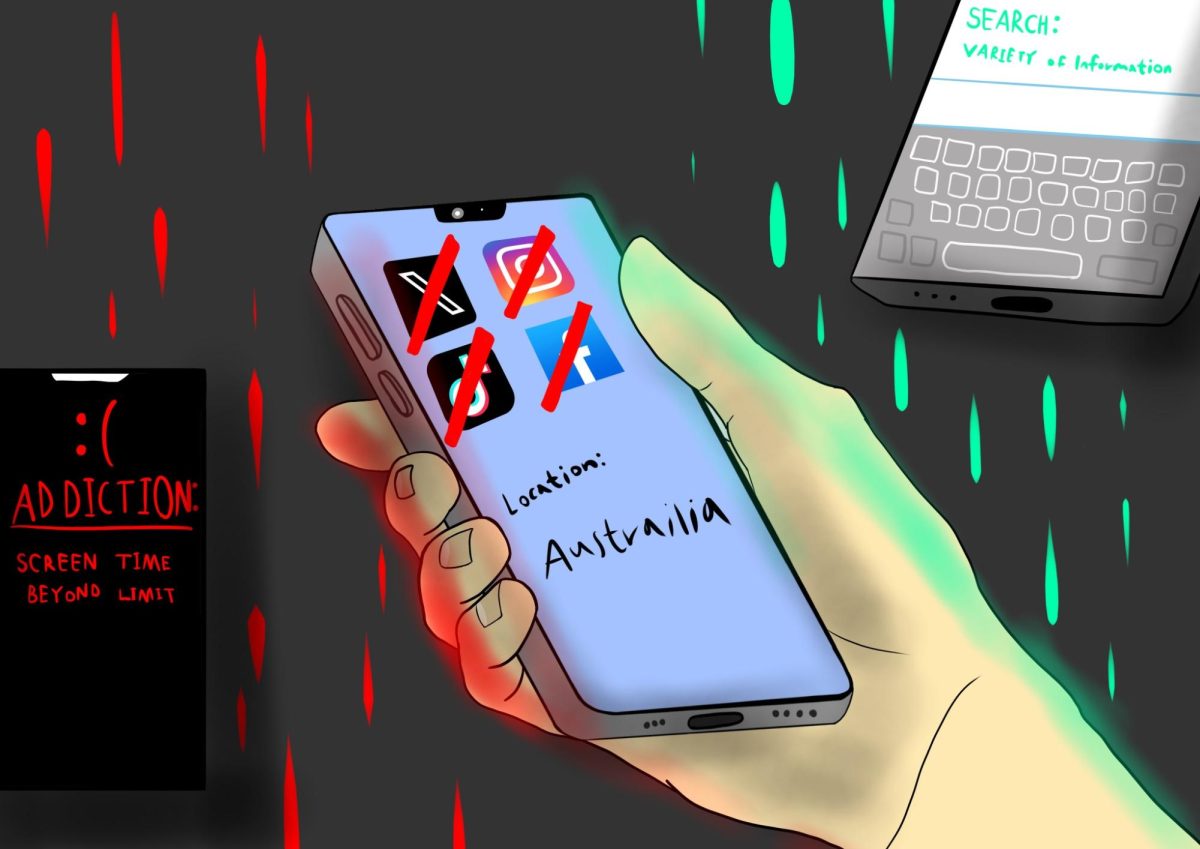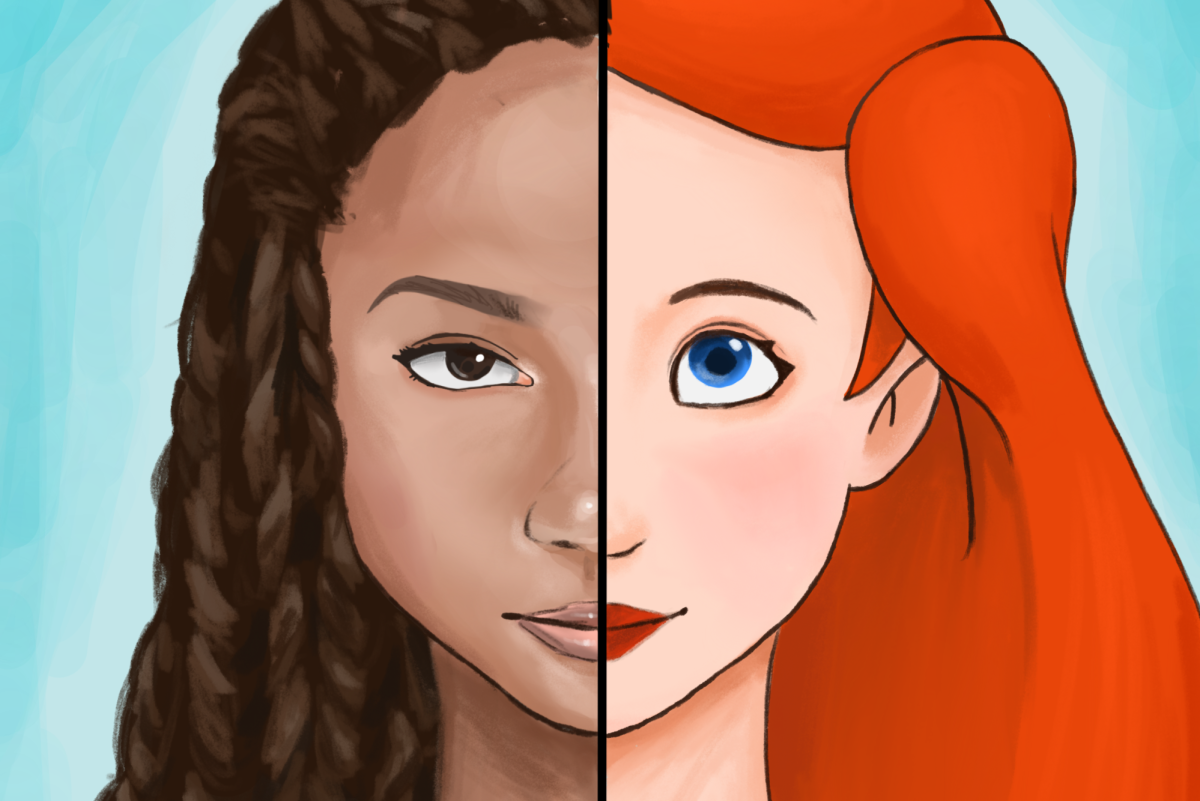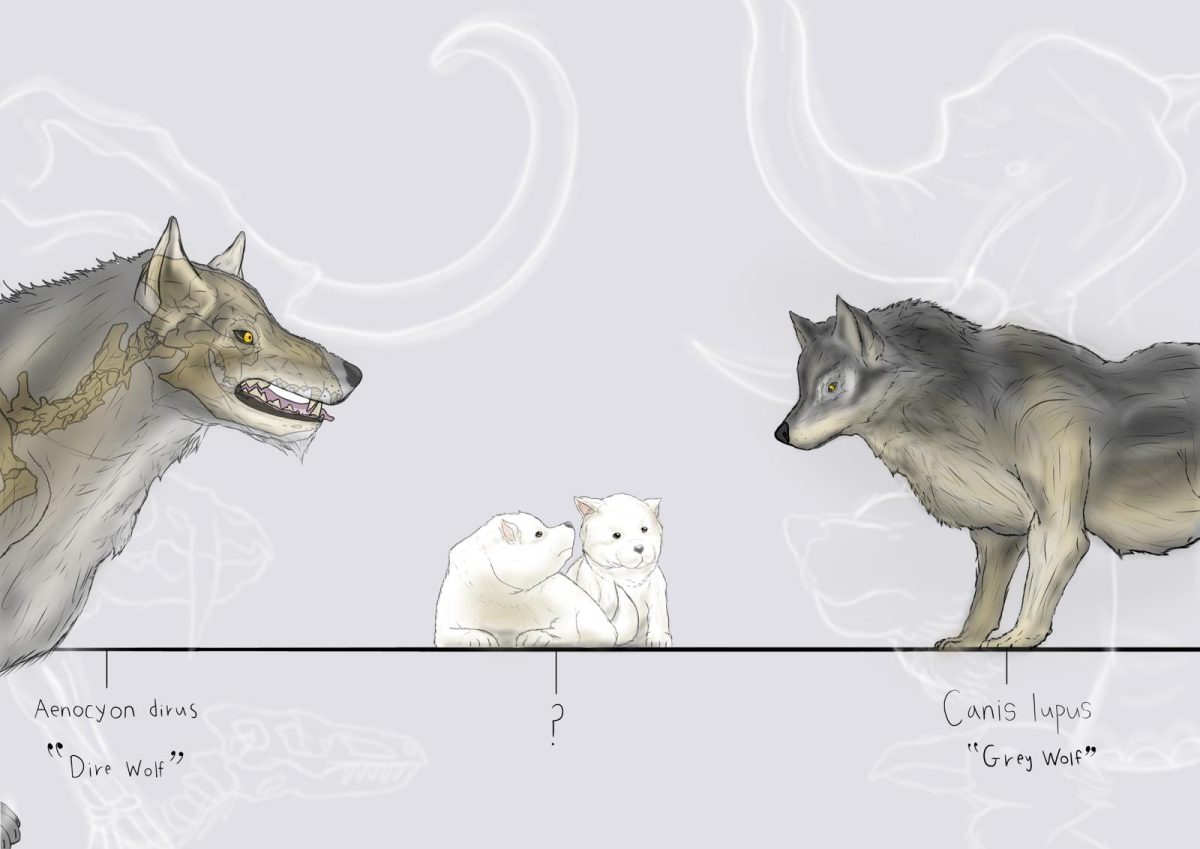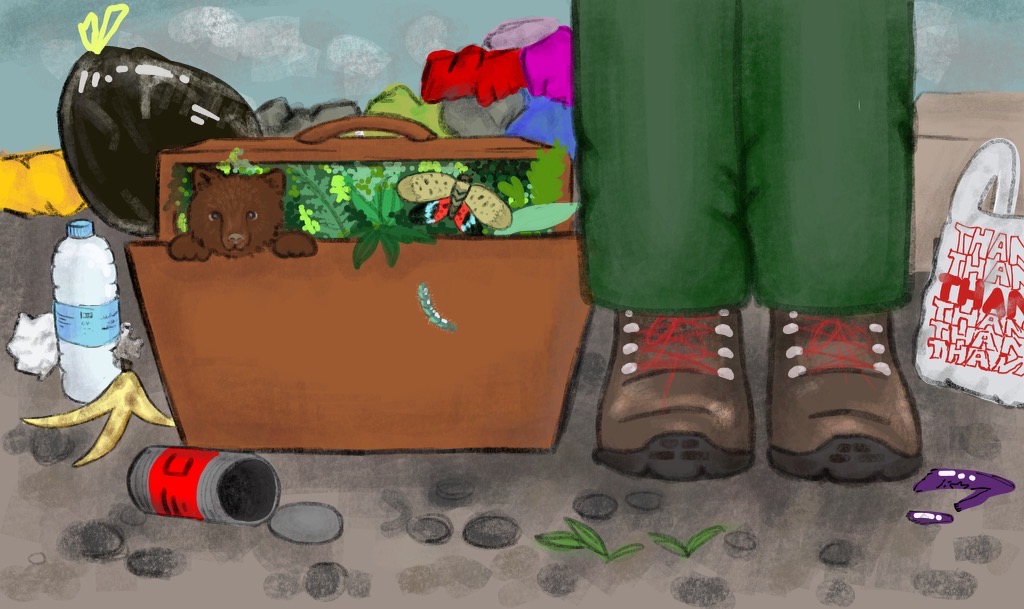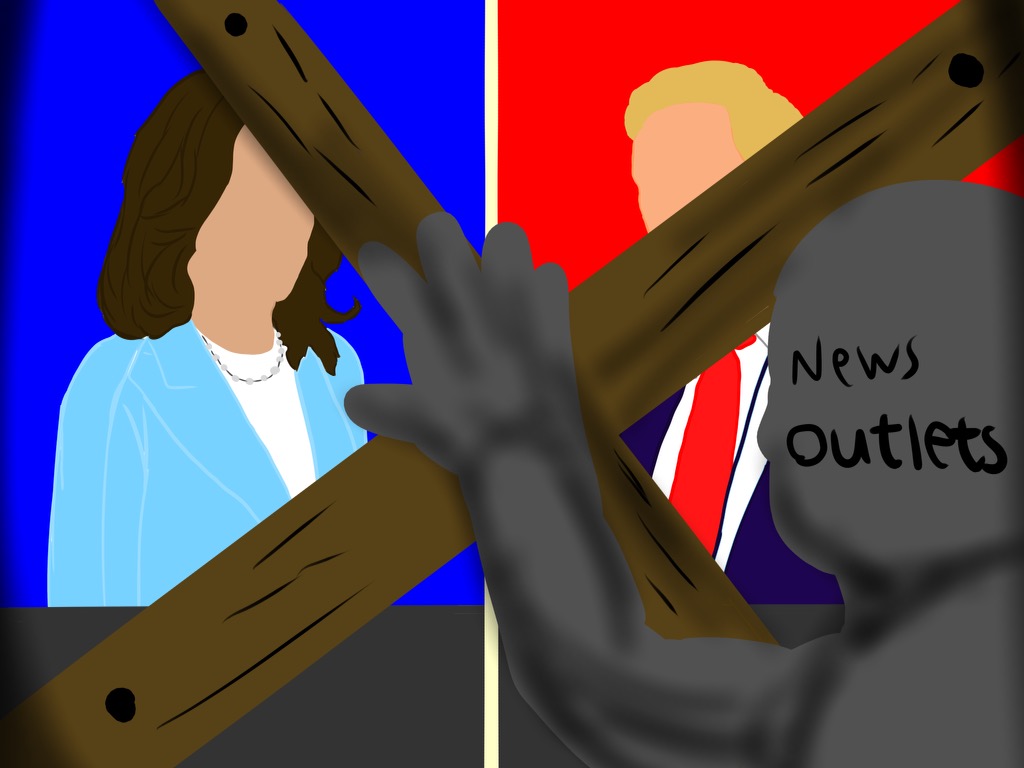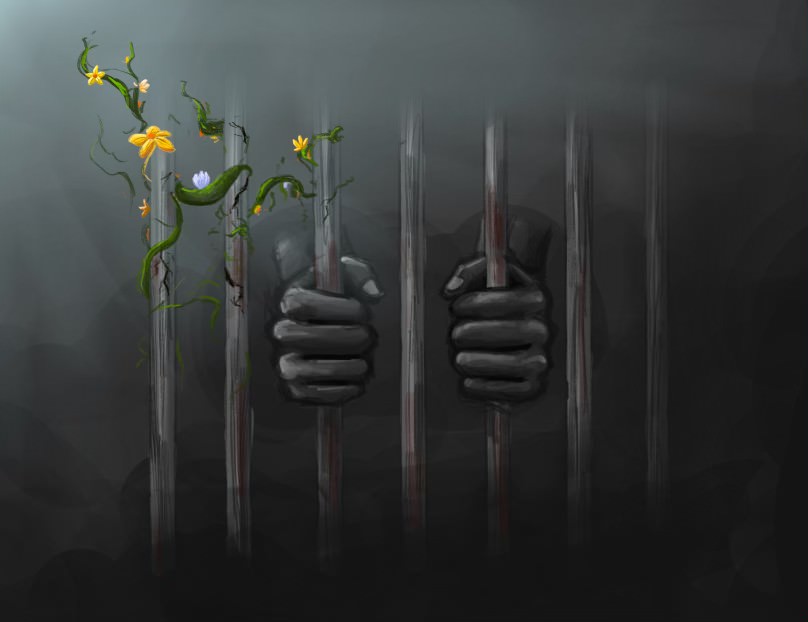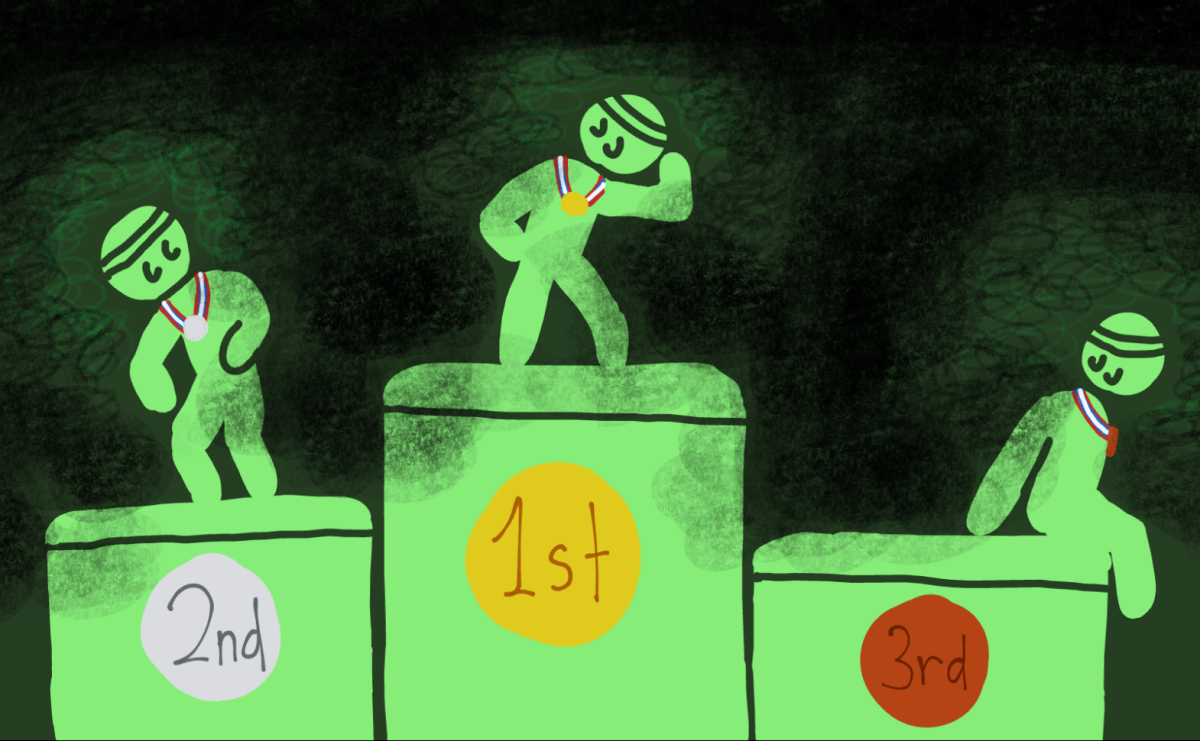Social media — a tool that connects, informs and entertains — has also become a source of growing concern, especially for young children and teenagers. Since Australia has recently passed a law to prohibit social media for users under 16, discussions about protecting young people from the dangers of the Internet are increasing. However, the issue in the United States is not whether these platforms should be banned, but rather how to strike a balance between the importance of freedom and digital connections and the need for safety in the digital realm.
It is undeniable that social media provides open access to knowledge, connections and creativity. Through social media sites like Instagram and TikTok, teenagers can advocate causes, learn new skills and attract the attention of college and athletic recruiters. In spite of said benefits, the risks are equally obvious: sextortion, mental health issues, cyberbullying and compulsive doom-scrolling.
Studies point to a link between children’s growing use of social media and mental health problems. According to a study conducted by Yale Medicine, “American teens ages 12 to 15, those who used social media over three hours each day faced twice the risk of having negative mental health outcomes.”
However, it’s difficult to overlook the larger cultural shift: Gen Alpha, or the “iPad kids,” are growing up in a world where screen time frequently takes the place of face-to-face interaction. This current reality is dire and requires action, but a full ban on social media is not the answer.
Limitations and restrictions on technology have a history of failing. Teenagers are skilled at getting around limitations by using proxy servers, Virtual Private Networks, or lying about their age when creating social media accounts. Age-verification laws aim to restrict minors’ access to certain online content, but enforcing these laws is difficult.
According to the think tank R Street, “IP addresses indicate general location, they can be off by miles, and are by no means a perfect way to determine location.” In other words, VPNs can mask a user’s location, making it appear as though they are accessing the internet from a different jurisdiction, thereby circumventing regional restrictions.
A national social media ban could have negative social and economic effects in addition to practical ones. Global citizenship, political action and small business promotion are all fueled by online presence. Teens would miss out on chances to study, connect and develop in a society where technology is king if they were cut off from these resources.
Rather than enacting bans, the U.S. should prioritize providing youth and their families with the knowledge and resources they need to use social media responsibly, such as digital literacy programs in schools and further parental support. In incorporating comprehensive programs for digital literacy, students can learn how to spot false information, understand algorithms, evaluate their own digital footprints and use social media responsibly. Teens are better equipped to make decisions when they are informed about the advantages and disadvantages of internet platforms. Furthermore, parents frequently lack the skills or self-assurance necessary to supervise their kids’ social media use. This gap can be filled by workshops and materials that assist parents in establishing limits and encouraging candid discussions about online safety.
Social media is a tool that reflects how we use it; it is neither completely good nor entirely terrible. Nuanced solutions that take into account the complexity of teen life in the digital age are necessary to strike a balance between freedom and safety. The secret to ensuring that the future generation can prosper both online and offline is education, not repression.
Instead of following Australia’s lead, the U.S. should forge its own course, one that balances social media’s difficulties with individual liberties. We can safeguard young people’s well-being and promote a more informed, healthy society by giving them the tools they need to succeed in this digital world.


